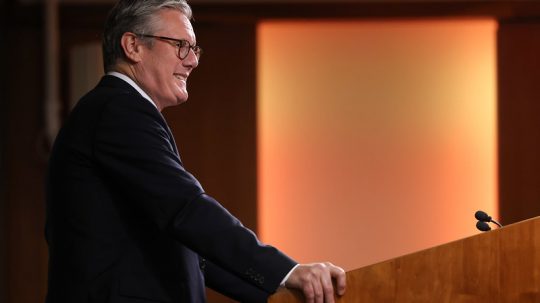Home Secretary, Yvette Cooper, announced plans for major policing reforms yesterday at the National Police Chiefs’ Council and Association of Police and Crime Commissioners’ annual conference.
In her speech, the Home Secretary stated that without a ‘major overhaul to increase public confidence, the British tradition of policing by consent will be in peril’.
The reform will include a new Police Performance Unit to track national data on local performance and drive up standards, a Neighbourhood Policing Guarantee to get policing back to basics and rebuild trust between local forces and the communities they serve and a new National Centre of Policing to harness new technology and forensics, making sure policing is better equipped to meet the changing nature of crime.
Addressing public confidence in policing, Home Secretary Yvette Cooper said: “Public confidence is the bedrock of our British policing model but in recent years it has been badly eroded, as neighbourhood policing has been cut back and as outdated systems and structures have left the police struggling to keep up with a fast-changing criminal landscape.”
In what the Home Secretary called a ‘strategic reset’ in the relationship between government and policing, the Home Office is set to take a ‘more active role’ in working with policing leaders to drive improvements and ensure policing is set up to succeed.
Dr Rick Muir, Director of the Police Foundation, said: “A serious reform programme like this in policing is long overdue. Too often in the past, officers at the frontline have been let down by outdated technology, inadequate training and inefficient support services. Until these issues are addressed, the public won’t get the quality of policing they deserve.”
However, Women’s Aid have stated that the plans do not do enough to address deep-rooted cultural issues and do not address the need for funding commitments in other areas that support survivors of domestic abuse.
Head of External Affairs at Women’s Aid, Isabelle Younane, said: “The funding commitments to policing made today confirm our concerns that the Government’s approach to their VAWG mission relies too heavily on criminal justice responses and ignores the importance of specialist services in not only supporting survivors but also in ensuring long-term recovery and preventing the reoccurrence of abuse.
In recent years, there have been several high-profile cases of officer misconduct, several of which have resulted in public fatalities. Alongside these cases, there have been reports and investigations into police forces across the country which have found evidence of institutional misogyny and racism.
“Women’s confidence in the police, and the wider criminal justice system, is extremely low, with only 1 in 5 women reporting their experiences of abuse. As specialist domestic abuse and other VAWG services battle to plug the needs-gap this presents for some of the most vulnerable women in our society, we urge Government to recognise their importance and invest in their future.”
Meanwhile, the Domestic Abuse Commissioner, Nicole Jacobs, stated: “Too often victims tell me about the challenges they face when reporting to the police. I hope today’s announcement will be a step towards earning their confidence in policing.”





